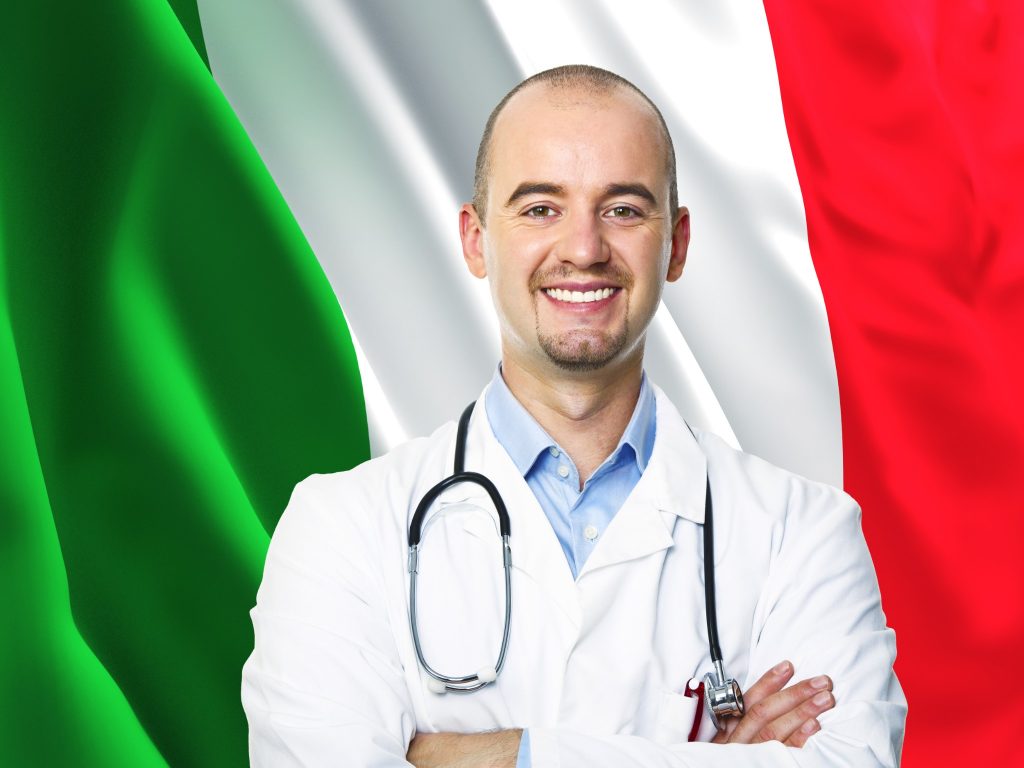
Along with stunning coastlines and architecture, Italians enjoy incredible medical care. The Italian healthcare system is one of the best in the world.
The Servizio Sanitario Nazionale, or National Health Service, provides free basic healthcare to the citizens and residents inside Italy’s borders. Ready access to healthcare plays a part in Italy’s people having one of the highest life expectancies in the world.
Are you curious about healthcare and other benefits of dual Italian citizenship? Get Italian Citizenship can help you navigate the process of claiming your heritage. Reach out today to get started.
How Does Healthcare Work In Italy?
All citizens and residents of Italy have the privilege of healthcare through the Servizio Sanitario Nazionale (SSN). Those needing medical services can go to their local public healthcare center or hospital. Basic and emergency services are available free of charge under the Italian healthcare system.
If you live in Italy, you likely need to register with the SSN since it is mandatory for most workers and their family members, as well as permanent residents. Voluntary registration is available for individuals like students and people working on a short-term contract.
Mandatory registrants receive most of their healthcare for free. Voluntary members, however, need to pay an annual registration fee. This cost is variable but is usually around $200 per year.

There are pros and cons to the Italian healthcare system. Twenty different regions that vary in size and population administer the service. That regionality means that some public healthcare facilities may be overcrowded while others are not.
Overall, though, the health statistics suggest that even more congested areas provide excellent care. Citizens may also continue to purchase private insurance if they choose. Non-citizens who want to establish residency must have private health insurance to apply for resident status. Once they have legal status, they can register with the SSN.
Are There Any Services the Italian Healthcare System Doesn’t Cover?
Not everything falls under Italy’s national healthcare system. Here are a few areas where citizens continue to pay out-of-pocket:
- Dentistry – The SSN will cover emergency care and care for children under age 16, but Italians should plan to pay for other dental care.
- Prescriptions – Prescriptions are not always completely covered. Patients may need to pay a copay, or ‘ticket fee,’ depending on the medication and the patient’s income.
- Over-the-Counter Medicines – Italian healthcare doesn’t cover OTC medications, so Italians need to buy their own aspirin and Alka-Seltzer.
- Cosmetic surgery – The SSN doesn’t cover tummy tucks and chin lifts. But they will foot the bill if you need reconstruction after an injury.
- Alternative Birthing Centers – The Italian healthcare system covers the cost of giving birth in a public hospital. If you choose to use a midwife at home or another alternative, plan to pay the bill on your own.

Residents and citizens should also expect a copay when they see specialists, such as neurologists, orthopedic surgeons, and cardiologists. The copay usually comes to about $40.
Around 30% of the Italian population chooses to purchase private health insurance. Private clinics and hospitals often provide faster access to physicians, but there is a cost for all services. Fortunately, even these amounts are far lower than comparable fees in the United States.
What About Quality of Care?
Physicians in Italy must meet the same high standards as physicians in other developed countries. You won’t experience a lesser quality of care from your Italian providers just because it’s a national healthcare system.
At public healthcare centers, you will not receive an appointment. The system more closely resembles urgent care clinics in the US, using a ‘first-come-first-served’ approach, so patients generally must wait their turn.
Specialists in Italy provide excellent care as well, but again, there is a wait. Neurologists, ophthalmologists, and other specialized providers have waitlists six to ten months long for non-urgent conditions.
Do Italian Citizens Have Coverage When They Aren’t In Italy?
The Italian medical system provides exemplary care to its residents when they are within Italy’s borders. But what happens when Italians go on holiday?

The Tessera Sanitaria is the Italian healthcare card that proves you have coverage, but it only works in Italy. You won’t be able to use it for care in Los Angeles or Chicago.
However, Italy does have a reciprocity agreement with other countries that provide universal care. For instance, Australia and Italy have agreed to provide emergency care for each other’s citizens within their borders.
Italian citizens and residents who travel throughout the European Union can apply for a European Health Insurance Card. This document allows you to receive medical care anywhere in the EU. This benefit of Italian dual citizenship is excellent for students, workers, and travelers.
What About Visitors to Italy?
The Italian government views healthcare as a fundamental right of its citizens and residents, but what about the 96 million tourists that visit this incredible country each year?
In an emergency, visitors do not have to worry about coverage. Medical treatment is available regardless of nationality in this type of situation.
If you require care while visiting, you may receive a bill, but it is generally much less expensive than services in the US. Major tourist areas also have a “Doctor on Duty” during the peak tourism season. This physician’s role is specifically to help visitors to the country with their medical needs.

US-based health insurance may not cover your medical expenses in Italy. Even if it does, Italian hospitals will expect you to arrange payment with them directly. You’ll need to apply for reimbursement from your insurance provider.
If you’re planning a trip to see the beautiful landmarks of Italy, you may benefit from purchasing travel insurance. Along with protection against unexpected travel changes, these options often include provisions for unplanned medical care. Check the details before you choose a plan, though, since the coverage can vary significantly.
Are You Ready To Explore Dual Citizenship?
Anyone who claims Italian dual citizenship enjoys greater ease of travel throughout the European Union, access to affordable education, and world-class, affordable healthcare.
If you’re ready to claim your dual citizenship, talk to the experts at Get Italian Citizenship. We know the ins and outs of applying for citizenship. Our team will guide you through the process, saving you both time and stress. Reach out today to get started.
